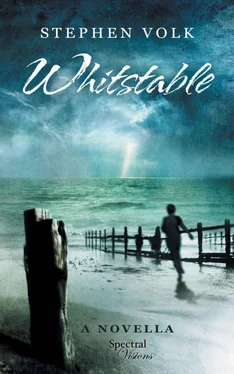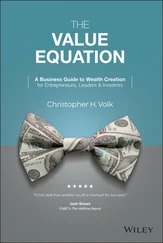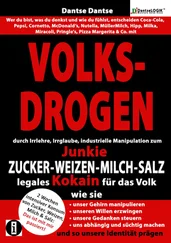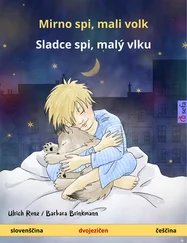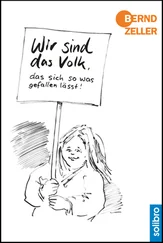In the Karnstein graveyard the vampire hunters see the figure of Carmilla entering the ruins. They follow, led by Douglas Wilmer’s lantern. The long cobwebby table is a nod to the first Hammer Dracula , perhaps. One of them finds a necklace on the floor. Peter Cushing looks up. They’ve found the vampire’s resting place.
They lift the stone slab from the floor. Peter Cushing and George Cole carry the coffin into the chapel. Wearing black gloves, Peter Cushing rolls back the shroud. “I will do it.” He takes off the gloves. George Cole kneels at the altar and prays. Peter Cushing takes the stake. Raises it in both hands. Thrusts it down into and through her chest. Back at the house, her victim cries out. Ingrid Pitt’s eyes flash open, then close, as blood pools on her chest. It is over. But not over.
Peter Cushing says, “There’s no other way.”
He draws his sword. With it firmly in one hand, he lifts Ingrid Pitt up by the hair in her coffin. Cuts off her head in one swipe.
As George Cole utters a heartfelt prayer that their country is rid of such devils, Peter Cushing’s General lowers the severed head into the coffin. And Carmilla’s portrait on the castle wall, young and beautiful as she was long ago—in life—turns slowly to that of a decomposed and rotting skull.
* * *
Cushing turned his head and found the seat next to him empty.
As the cast list rolled up the screen, he stood and looked round an auditorium lit only by the spill from the projector beam. He shielded his eyes with the flat of his hand but it was clear nobody was present but himself.
He was still standing facing the small, square window of the projection room when the house lights faded up. He found himself even more clearly in a sea of empty seats. The smell of popcorn and Kia-Ora returned. This time he found it almost pleasant.
He walked into the sunlit foyer with one arm in his coat sleeve. A number of young couples were queuing for tickets for the next performance. One person noticed him and smiled. He raised a hand, not too ostentatiously, not wanting to draw attention to himself, then criss-crossed his scarf on his chest and dragged on the rest of his coat. Another few people arrived. Quite a healthy gathering for an early evening showing. He was pleased, in a subdued way, as if one of his children had done well at school, with little help from himself. The film was a hit, and as long as the public liked it, he wished it well.
He let the heavy door shut behind him. Even more than usually when he had seen a film in the afternoon, the sunlight came as a shock. It almost blinded him, but he was grateful for the warmth on his skin. He raised his chin and stood with his eyes closed for several minutes, and when he opened them, found it noticeably strange that there was not a single gull in the sky.
Ten minutes later he committed the oyster knife to the sea with a throw worthy of a fielder at the Oval.
* * *
When he arrived home at 3 Seaway Cottages he felt Helen’s smile in the air immediately, like the most delicate and distinctive fragrance.
“Look.” He lifted his hand up in front of his face. “I’m still shaking.”
You were wonderful.
“Nonsense.”
You are wonderful, Peter.
He felt a strange fluttering at the back of his throat and looked at the door to the living room but didn’t open it.
“So are you, my love.”
Suddenly he found he was ravenously hungry for the first time in he didn’t know when.
In the kitchen he took two slices of bread and cooked cheese on toast under the grille, served with a generous dollop of HP sauce. His appetite undiminished, he made two more rounds, slightly burned, just the way he liked it.
That night he slept soundly, and without dreams.
* * *
He was woken early the following morning by the telephone ringing as if on a distant shore. He sat up in bed, body lifted as if by a crane, not particularly hurrying to do so. Recent events still had not returned fully to his consciousness. Images drifted. Feelings coagulated, some real, some imagined, all vague and irrepressible. His head was too thick with slumber to sort fact from fiction and he wondered if he was waking up or acting waking up. He needed a minute to think about that, if you’d be so kind. The telephone, impolitely, was still ringing with a persistence normally reserved for insects and small children. He slumped back onto the pillow, hoping to return to the land of Nod. The telephone had other ideas.
When it started to ring the third time he could ignore it no longer. He picked up the receiver, rubbing sleep from his eyes with his other hand. He recited the number, automatically.
“Peter?” A man’s voice.
“Yes?”
“Did I wake you?” It was Derek Wake. Appropriately named, in this instance.
“No. Not at all.” He was about to add that he’d answered because he thought it was perhaps Joyce ringing, but the Inspector interrupted his thoughts.
“I’m sorry, Peter, but I thought I’d better ring before you hear this on the jungle telegraph. I thought you might want to know. Les Gledhill died in a car accident last night, on the stretch of the M2 between Faversham and the junction with the A249 near Sittingbourne. There doesn’t appear to have been any other vehicle involved, and there was no-one else in the car at the time.” Having said this quickly without pausing, he suddenly stopped.
Cushing felt the silence looming and wished his head was clearer. An element of him wondered if he was still asleep. Meanwhile he heard the detective’s voice fill the gap with more words:
“His car left the carriageway. It was a head-on collision. He hit the central reservation, the barrier, span across into the hard shoulder. Complete write off. As I say, no other vehicle was involved. …Peter?”
“Yes. I’m here.”
He was awake now. Fully. But he did not know what to say.
He wondered if the policeman would ask him next why he was in conflict with Gledhill over some issue concerning his son, and probe more fully why exactly Gledhill had made accusations against him. If he might resurrect the questions he himself had asked during his visit to the station concerning a film story about child molestation. A film which, when examined more closely, would be seen to be a complete fabrication.
But Wake asked none of these things.
“He was dead on arrival at Canterbury Hospital. Died instantly. Appears to have been driving at very high speed, from the tyre marks. No witnesses. Whether he lost control for some reason, or did it on purpose, we don’t know. These things happen. You don’t often see them coming. Those close to the deceased, I mean…”
Disappear. Turn to dust…
What he’d meant was, go. Leave town. Go away. Not this. Then he remembered:
What do you want me to do?
Do what is right and good, for once.
Good?
Save yourself, in the only way you can.
Dear Lord…
Was Gledhill in his final moments thinking of his immortal soul? Had he simply decided to do something good, for once, as he’d been bidden, for someone other than himself? Or was suicide just what it often was, as Peter Cushing knew all too well, the act of a coward? A weak man’s only escape from an unbearable future?
“Peter?”
He rubbed his eyes again. The room wasn’t focusing, so he kept them shut. He was aware that the other man could hear his breathing down the telephone and was waiting for him to reply, so he spoke in as steady a voice as he could muster.
“Derek, can I ask you something, please?” he said with his eyes still closed. “I want you to do something. This is very important to me. I can’t tell you why, but it is.”
Читать дальше
